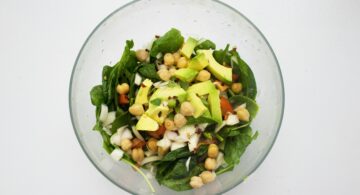Adopting A Smart Brain Diet
According to current research, a smart brain diet is one that reduces the risk of dementia and Alzheimer’s. This diet is designed to encourage good blood flow to the brain and is low in fat and cholesterol. Like the rest of your body, the brain needs the right balance of nutrients to function and perform properly, as well as to continue to function as we age. A smart brain diet is most effective when combined with continued physical and mental activity, and deep social interactions.
The brain is an extremely complex organ. It works non-stop and does an infinite amount of tasks. Even while we sleep your brain is working; we must feed it the right nutrients to help us concentrate, stay motivated, improve our memory and prevent mental deterioration.
Manage your body weight for good overall brain and body health
A long-term study of adults found that those who were obese in middle age were twice as likely to develop dementia in later life. Those who also had high cholesterol and high blood pressure had six times the risk of dementia. Adopt an overall food lifestyle, rather than a short-term diet and eat in moderation. A larger lunch is better than a big dinner.
Things to remember for keeping a healthy weight:
- Eating a heavy meal before going to bed can disrupt your sleep, but a lighter meal will help you get more rest at night.
- Eat in moderation
- Adopt a long term healthy eating lifestyle
Reduce Your Intake of Foods High in Fat and Cholesterol
Studies have shown that high intake of saturated fat and cholesterol clogs the arteries and is associated with higher risk for Alzheimer’s disease. However, HDL (or “good”) cholesterol may help protect brain cells. Be sure to add protein to help you sustain a good energy level. Protein breaks down in the digestive system into amino acids and research has shown that some types of amino acids can improve alertness and mental agility.
Things to remember for heating low fat:
- Try baking or grilling food instead of frying
- Use polyunsaturated fats, such as olive oil or canola oil, instead of butter or partially hydrogenated oils
- Choose lean cuts of meat
- Eat more fish
- Eat more fiber
Increase Your Intake of Cell Protective Foods
Current research suggests that certain foods may reduce the risk of heart disease and stroke, and appear to protect brain cells.
Antioxidants
In general, dark-skinned fruits and vegetables have the highest levels of naturally occurring antioxidant levels. Such smart vegetables include:
- Kale
- Spinach
- Brussels sprouts
- Alfalfa sprouts
- Broccoli
- Beets
- Red bell pepper
- Onion
- Corn
- Eggplant
Fruits with high antioxidant levels include:
- Prunes
- Raisins
- Blueberries
- Blackberries
- Strawberries
- Raspberries
- Plums
- Oranges
- Red grapes
- Cherries
Omega-3 Fatty Acids
Cold water fish contain beneficial omega-3 fatty acids:
- Halibut
- Mackerel
- Salmon
- Trout
- Tuna
We need fatty acids to keep the brain running properly. Omega-3s, specifically, help to enhance cell-to-cell communication and protect brain cells.
The most widely available source of omega-3 is fish, but mega-doses of omega-3 are also found in flax seed (the biggest botanical source), as well as walnuts and chia seeds.
The Truth About Eggs
Consider whole eggs once or twice a week. Egg yolks have a special nutrient that has been proven to boost brainpower by making the brain work faster. Aside from being an excellent source of protein, eggs also have vitamins like choline, a fat-like B-vitamin that has been shown to enhance memory and minimize fatigue.
Nuts
Some nuts can be a useful part of your diet. Almonds, pecans and walnuts are a good source of vitamin E, a natural antioxidant.
Hydration
The brain is 75% water and needs a steady supply of it. Dehydration can affect cognitive ability. A dehydrated brain causes the release of the stress hormone cortisol, responsible not just for an increase in the body’s fat storage and muscle depletion, but also for negating the brain’s ability to store and create information.
Vitamins May Also Be Helpful
There is some indication that vitamins, such as vitamin E, or vitamins E and C together, as well as vitamin B12 and folate may be important in lowering your risk of developing Alzheimer’s. A brain–healthy diet will help increase your intake of these vitamins and the trace elements necessary for the body to use them effectively.
In Conclusion
Eating healthy is not only important for your overall health, but it is even more important for optimal brain function, memory and mental health. The way we feel and how well we concentrate often have a lot to do with how we eat smart. These simple steps outlined above can go a long way in helping you deal with life’s daily challenges physically, as well as mentally.
Aunt June’s Brain Healthy Smoothie
- 1 cup frozen blueberries
- 1/2 tbsp Spirulina (from the health food store)
- 1/2-cup nonfat plain yogurt
- 1 tsp ground flaxseed
- 1/2 handful of almonds
Blend and enjoy!!
Nutritious Trail Mix
- 1 cup of each dried fruit: raisins, blueberries, cranberries, plums
- 1 cup unsalted peanuts, sunflower seeds or almonds
- 2 cups whole grain cereal, unsweetened
- 1/2 cup dark chocolate chips (optional)
Mix and place in zip lock bags for nutrition on the go.
Heart Healthy Honey Glazed Sweet Potatoes
- ¼ cup water
- 2 Tbsp brown sugar
- 2 Tbsp honey
- 1 Tbsp olive oil
- 2 pounds sweet potatoes (4 large) peeled and cut into wedges
Directions:
Preheat oven to 375 F. Lightly coat a 9×13 baking pan with cooking spray. In small bowl whisk water, brown sugar, honey and olive oil. Place a single layer of sweet potatoes in the pan and pour the brown sugar, honey and olive oil mixture over to coat. Cover and bake until tender (about 45 min). Turn sweet potatoes once or twice to re-coat. When tender, remove the cover and continue to bake for about 15 more minutes.




























